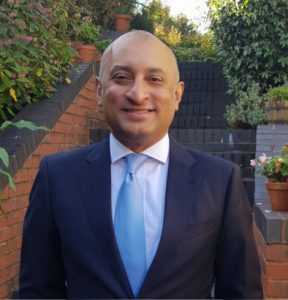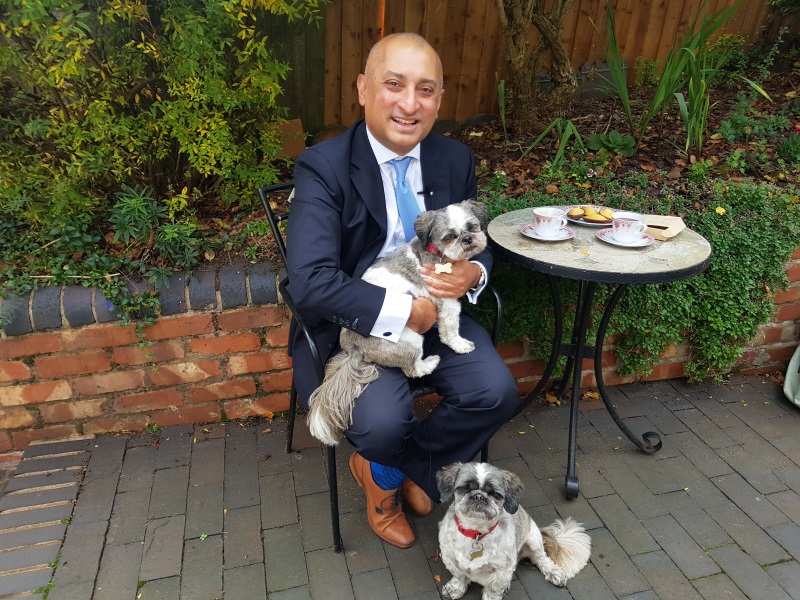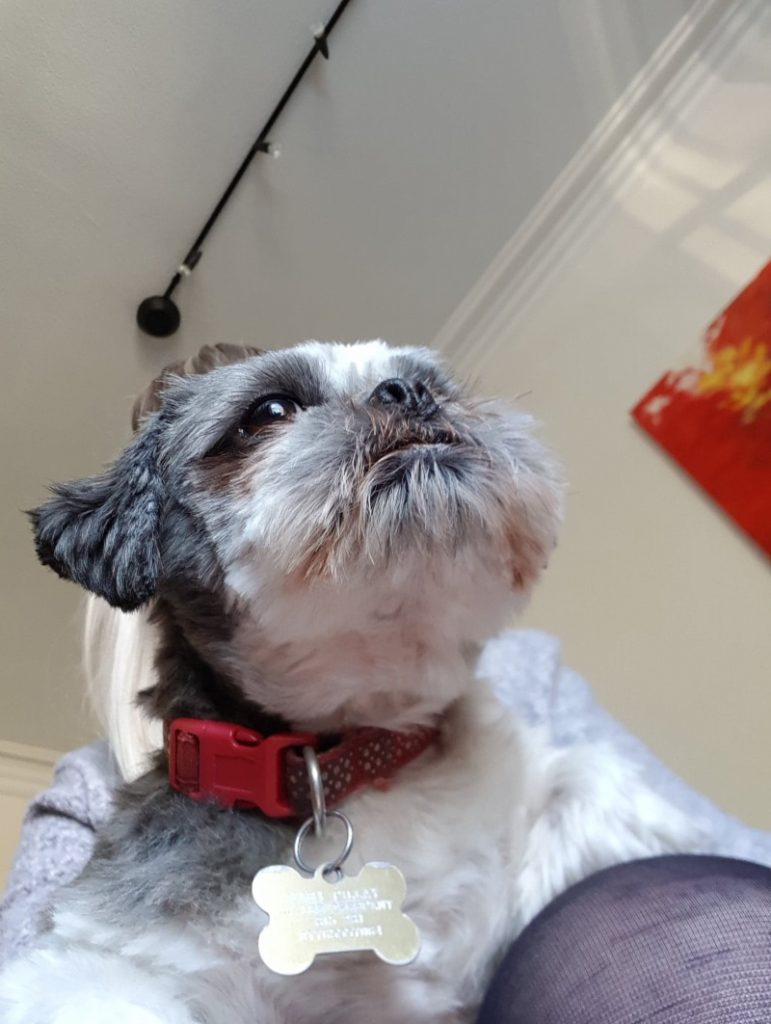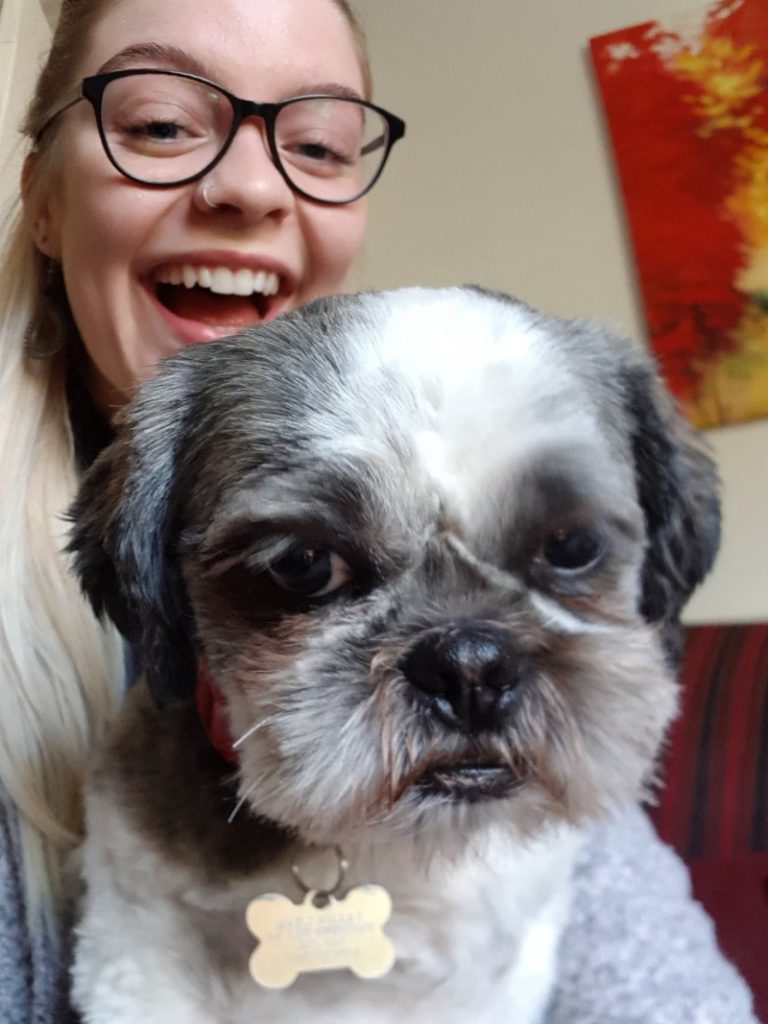Medstars in their Eyes | Dr Tarun Kuruvilla

Medstars met with consultant psychiatrist, Dr Tarun Kuruvilla, at his home in Birmingham.
Tarun shares his home with his wife and two charming little pups, Scamp and Truffles, who were very welcoming during our visit (keep reading for pics).
Specialising in the early diagnosis and treatment of Alzheimer’s disease and other types of dementia, Tarun passionately debunks common misconceptions about memory problems.
With over 10 years’ experience as a dementia specialist, Tarun is an expert in his field but modestly explains the person living with dementia is the true expert and his main priority is to ensure his patients experience a good quality of life.
Now over to Tarun…
My friends and family describe me as…
“Dedicated, passionate and hardworking.”
I love my job because…
“I like diagnosing people in the very early stages and dispelling their fears and the myths about Alzheimer’s disease and dementia seeing how that makes such a big difference to their quality of life.
However, it’s a tough job and that is recognised by everybody working in this field because there is no cure. If you work in general psychiatry and you’re treating younger people with depression for example, most of these people will get better and you get that job satisfaction of seeing them get better.
With dementia you don’t see that, and so it’s much more subtle outcomes that you’re looking at. You can show them the scan, show them the shrinkage of the brain and help them to understand the disease and what they’re dealing with so they know what to expect. It’s also important for them to know that there are treatments. All of this knowledge significantly improves their quality of life.
My job is to allow people to make sense of it and help them to live well with the disease for as long as possible. Even in the advanced stages you can have lucid moments and you can have good quality of life. Quality of life is the most important thing and not just for people with dementia but for all of us really.”

My greatest professional accomplishment is…
“In my NHS practice in Cheltenham we took the diagnostic rates up from around 30% to 70%. We are now one of the best in the country in terms of dementia diagnosis rates. We have also gone from carrying out a small amount of research to carrying out a lot of research, particularly the clinical trials for the new disease modifying treatments for Alzheimer’s disease. The research is quite complex but we have a thriving research centre now.”
Advancements in the diagnosis of memory loss include…
“We are able to diagnose people earlier and earlier using very advanced brain scans like PET scans, glucose PET scans and amyloid PET scans, relying on what we call biomarkers. The way we diagnose dementia at the moment is through clinical diagnosis, so looking for symptoms and memory problems that sort of thing. Biomarkers are blood tests, scans or lumbar puncture analysis which allows us to diagnose people even before they have symptoms. I work in partnership with an imaging charity in Cheltenham called the Cobalt Health and they’ve got some of the best imaging equipment in Europe. With these we can diagnose people at a very very early stage and early diagnosis means we can offer clinical trials for disease modifying drugs and make a considerable difference to the trajectory of the disease.”
(We then asked Tarun if he thought mass screening for Alzheimer’s disease and other types of dementia was a realistic possibility…)
“A tax payer funded service like the NHS couldn’t cope with that. What we know about Alzheimer’s disease is that the first changes, there’s this protein called amyloid that starts getting clumped in our brains. That would probably start in our 50s, 20-30 years before the onset of any memory problems. So if you’re going to screen people you’re going to have to screen everybody 50 and above with quite advanced, quite expensive technology like PET scans or lumbar punctures which can be quite invasive as well. So, how are we going to cope with that? So, the big debate in the future is about how a health service like ours, the NHS, are going to cope with that.”
If I wasn’t a consultant psychiatrist, I would be a…
“I’d love to be a Professor of History. I enjoy travelling and visiting historical places and looking at the archaeology. My wife finds it very annoying saying, ‘Oh you’re dragging me off again to look at some old stones!'”

My greatest personal accomplishment is…
“I think having travelled quite extensively. I really enjoy experiencing different cultures. I think I’ve been to about 70 countries now. The history of Cambodia is interesting. Laos is also a staggering, stunning, little country. So yes, travelling, experiencing different cultures and getting to know indigenous people and I suppose that’s coming from a psychiatry background. Getting to know how people work and how they think.”
The best advice I have been given is…
“Some of the people who inspire me the most are my patients and their carers. It’s remarkable how much fortitude and bravery they have in living with this condition and living well with it. Taking each day as it comes and enjoying life to the fullest.
I think the best advice I’ve been given is from one of my carers saying that the person with dementia is always the expert. They are always correct. And if you look at it that’s probably right because the expertise of living with dementia is not coming from professionals because we don’t experience it ourselves, we just see people every 3 or 6 months. Carers also live with it day to day so they know what it’s like and they’re very happy sharing their experiences about what works. It doesn’t really matter asking what’s the date? Where are you? What did you have for breakfast? Who’s this person? All of that doesn’t matter it’s just the emotion of living right in the moment. You can use this in your own life too and it links with the whole mindfulness thing it’s about living in the moment not worrying about the future or the past. It’s good for stress management.”

Music that makes me happy includes…
“I like traditional Jazz. It chills me out.”
I like Medstars because…
“It’s patient facing. The ethos is very much about patient experience and patient choice and the importance of that is hugely underestimated in healthcare.”
You can book a consultation with Dr Tarun Kuruvilla, who has expertise in dementia, early onset dementia, vascular dementia, neuroimaging in dementia and Alzheimer’s disease, here.
Medstars Medical Concierge Service
Looking for extra guidance when it comes to your healthcare? Sometimes interpreting medical information and making the best decisions can be daunting and complicated. Our private medical concierge service provides easy access to top UK health experts. We guide our patients with genuine choice and trust, offering a bespoke service for anyone in the world seeking private UK healthcare. Learn more about Medstars Medical Concierge Service. Want to learn more about providing our medical concierge service as an employee benefit? Learn more about Medstars Medical Concierge for Business.

